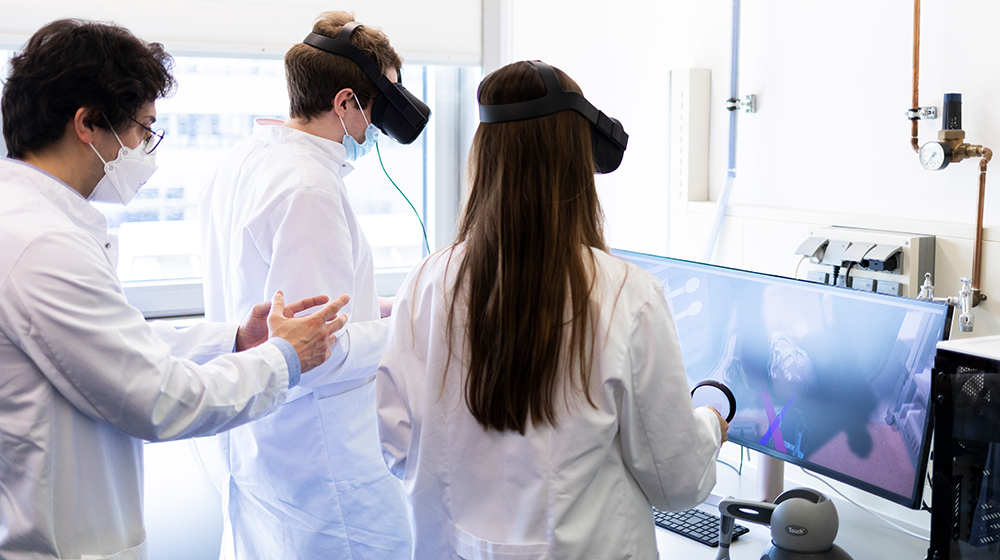
Many areas of medicine are becoming increasingly technical, including surgery. However, robots, virtual reality and the like are not only used for surgery, but also to train specialists. At the Department of Neurosurgery at Magdeburg University Hospital, prospective neurosurgeons are provided with practical training opportunities in a skills lab to hone their skills and abilities. "As training is particularly important to us, the skills lab is available to both residents and students," says Prof Dr I.E. Sandalcioglu, Director of the Department of Neurosurgery. Here, the prospective specialists have the opportunity to practise surgical techniques under controlled conditions and familiarise themselves with the instruments and technologies that await them in the operating theatre. "We want to achieve the greatest possible learning curve with the skills lab and hope that the trainee doctors will decide to specialise in neurosurgery as early as possible," says PD Dr med. Neyazi, senior consultant and lecturer at the clinic. Because, as in many other professions, the shortage of specialists cannot be denied.
The training laboratory, also known as the Centre for Innovation Research and Education (CIRE), offers realistic simulations of neurosurgical procedures, from skull opening to spinal surgery. The difference between theory and practice alone can be an initial challenge for students. "It starts with feeling the consistency of organs, for example a brain. Certain structures are a little harder, others a little softer and there are certain areas of the brain that are more malleable than others," explains PD Dr Neyazi. Accordingly, various materials were tested that come as close as possible to a real brain. This is the only way to practise the procedures as realistically as possible.
The first model that PD Dr Neyazi and his team offered in the Skills Lab was external ventricular drainage. "It is the simplest and quickest procedure that all students and residents have to perform," says Dr Neyazi. He continues: "When a cerebral haemorrhage occurs, the pressure in the brain increases. To release this pressure, a drain is inserted into the brain. This procedure is life-saving and is the first and most important thing that junior doctors do in their first year". As this procedure harbours risks, it is all the more important that it is mastered correctly. The Skills Lab training environment enables trainee neurosurgeons to improve their fine motor skills, sharpen their hand-eye coordination and familiarise themselves with complex surgical procedures. As the skills lab is very popular with students and residents, the programme is constantly being expanded.
Using 3D models created from patient data sets, the team can also recreate rare situations in order to be better prepared for unexpected challenges. "At CIRE, we use augmented reality, virtual reality and haptic feedback, and have already conducted initial experiments with deep learning. We are developing certain algorithms that can predict when and how various illnesses should be treated," says Dr Neyazi.
In the skills lab, students also have the opportunity to develop their own models, exchange ideas with the mentors and ask questions. In future, Dr Neyazi and his team would also like to offer a qualified course for medical students and junior doctors. "We want to motivate young people and introduce them to the subject with structured training so that the level of knowledge remains the same and continues to rise," explains Professor Sandalcioglu. This practice-orientated approach helps to improve the quality of neurosurgical care and optimally prepare the next generation of neurosurgeons.
Further information on the CIRE Skills Lab can be found online. Anyone interested in studying medicine can find more information at the website or can talk to mentors and students at an information event on 24 January 2024 from 5 pm.
